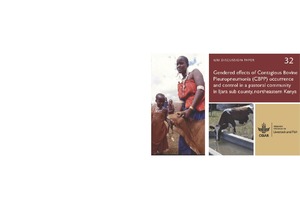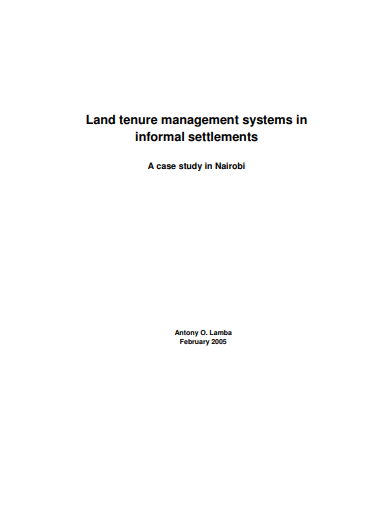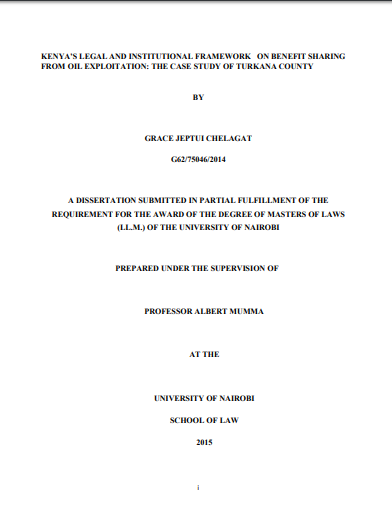Location
Our Vision is to be a world-class university committed to scholarly excellence.
Our Mission is to provide quality university education and training and to embody the aspirations of the Kenyan people and the global community through creation, preservation, integration, transmission and utilization of knowledge.
Core Values
In order to realize the above vision and mission, certain shared values shall be nurtured. There is great need for the University to be guided by the right values derived from the virtues and moral standards of the Kenyan and wider society.
Core Functions
Teaching and Learning: The university offers innovative , relevant and market driven academic programmes , both at undergraduate and postgraduate levels with inbuilt quality control systems the university also provides an environment and policy framework for undertaking high quality and relevant research
Members:
Resources
Displaying 71 - 75 of 298Gendered effects of Contagious Bovine Pleuropneumonia (CBPP) occurrence and control in a pastoral community in Ijara sub county, northeastern Kenya
Land Tenure Management Systems in Informal Settlements
Formal land administration systems in developing countries have failed to cope with the wide range of land rights that have evolved under non-formal land tenure arrangements. Urban informal settlements in particular pose a challenge to existing land administration infrastructure in these countries. The tenure types, land rights and spatial units found in such settlements are inconsistent with the provisions of existing land law. Conventional land administration approaches can not work in these settlements.
KENYA’S LEGAL AND INSTITUTIONAL FRAMEWORK ON BENEFIT SHARING FROM OIL EXPLOITATION: THE CASE STUDY OF TURKANA COUNTY
Oil exploitation is relatively a new phenomenon in the Kenyan legal system. The current energy laws, fail to identify and establish a relevant institutional and legislative framework for a natural resource benefits sharing regime. Indigenous Local Communities inhabiting oil rich areas disproportionally forgo their enjoyment of their land, livelihoods, endure environmental degradation, increase pollution and relatively poorer health as compared to the rest f the national population. For the above they ought to be compensated and accorded a percentage benefit over and above other Kenyans.
Special issue of nomadic peoples on securing the land and resource rights of pastoral peoples in east Africa
The land question in many African countries has geographical, political, economic, social and demographic nuances. These factors color land and resource rights for pastoral and forest dwelling communities. Land as property draws from the universality of the theory of property in time and space with the earliest theoretical explanations of property being occupation of land and where property belonged of right to him who seized it first. Land therefore represents the earliest form of property and includes resources on the land such as trees; pasture; water and wetlands.
I want it and i want it now: women and land in Africa
In Africa, as elsewhere, land rights have remained a bastion of male power and privilege. Since land is a fundamental resource for improving living conditions and economic empowerment, the lack of land rights for women undermines efforts to promote gender equity and equality within a patriarchal society. The minimal transformation of women’s socio-economic position with regards to access and control of land is, in many cases, due to land reform programmes and related processes whose design or implementation is “gender neutral”.





